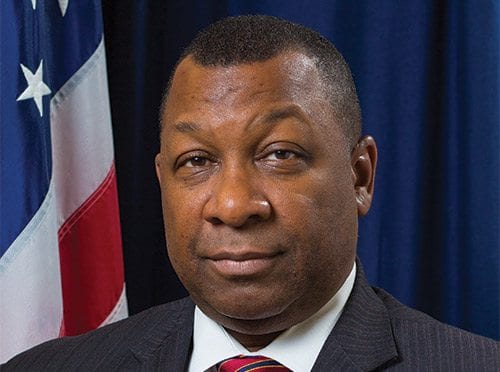
Suffolk County Sheriff Steven W. Tompkins has been elected to serve as President of the Massachusetts Sheriffs’ Association, following a unanimous vote by the other 13 sitting sheriffs.
“I am both elated and honored to be chosen as MSA president,” said Tompkins. “It’s always humbling to be recognized by one’s peers and I take this mantle very seriously. I look forward to fulfilling the mission of the organization.”
Established 30 years ago, the Massachusetts Sheriffs’ Association is made up of the 14 county sheriffs in Massachusetts and, according to its mission statement, works “to secure a unity of action by the sheriffs of the Commonwealth in order to address the numerous issues that have a direct relationship and impact on the entire criminal justice system, and which may affect the operation of the various sheriffs’ offices.” These issues include, but are not limited to: “those related to law enforcement, the care and custody of inmates and detainees, judicial services, transportation of prisoners, recidivism, officer training, re-entry programming, and legislative advocacy.” In his role as the MSA President, Sheriff Tompkins will preside over a leadership team that includes vice presidents of Training and Leadership Development, Re-Entry and Aftercare, Information and Technology and the State Director to National Sheriffs Association.
Speaking about his desire to bring the MSA further forward into the public discussion about the need for more addiction recovery and mental health services, anti-recidivism programming, greater focus on reducing domestic violence, and providing quality education and resources for prevention across the Commonwealth, Sheriff Tompkins acknowledged the challenges even as he fully embraced them.
“I know that we as the Massachusetts Sheriffs’ Association haven’t always been first in the minds or on the tongues of lawmakers, policy analysts or even members of the local and national media but, I intend to fully utilize the resources of this office to its best capacity to make sure that we are part of the conversation, particularly when it comes to public safety and the overall health of our communities.”






